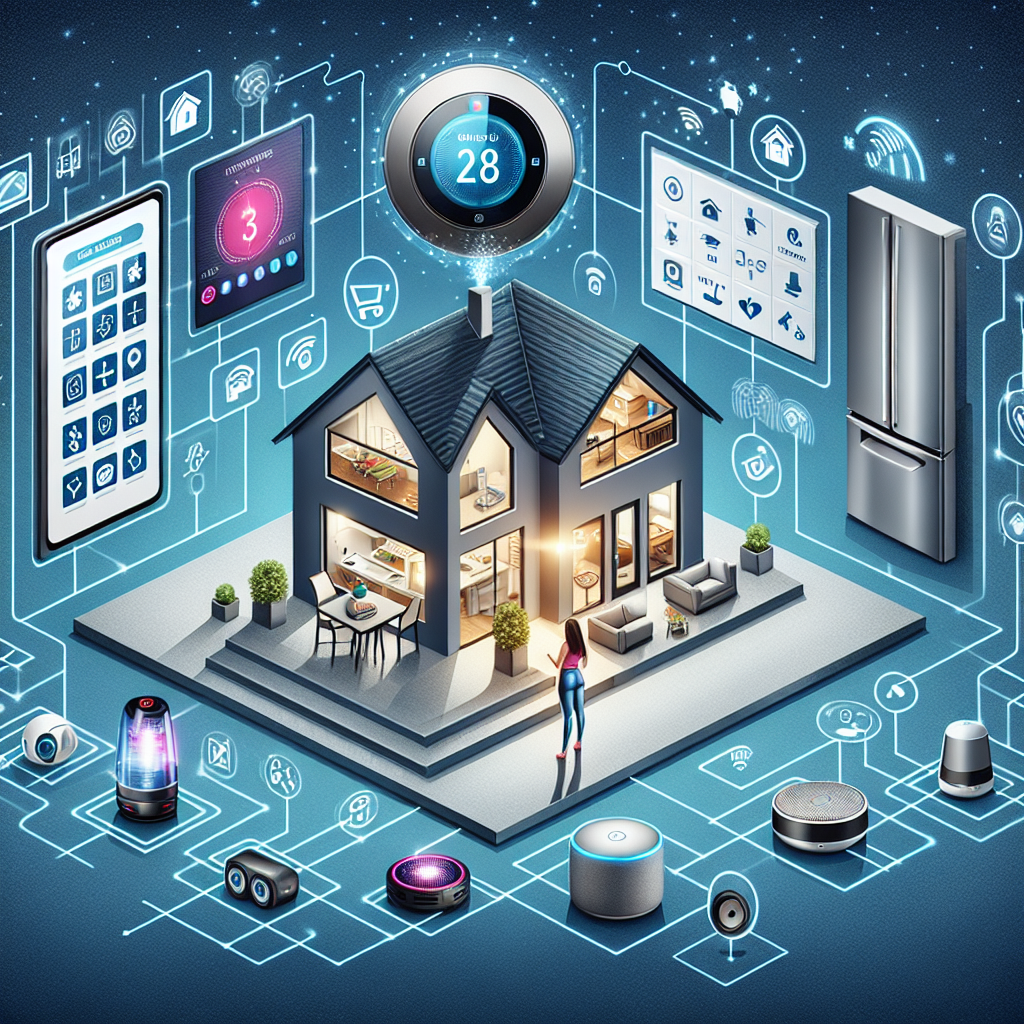[ad_1]
Introduction
The concept of a Smart Home is rapidly evolving, merging technology with everyday living to create spaces that are not only convenient but also more energy-efficient and tailored to individual needs. From smart lighting to automated security, the innovations within this sector are transforming how we experience home life.
Key Innovations in Smart Home Technology
1. Smart Lighting
Smart lighting systems allow homeowners to control lights through apps, voice commands, or sensors. Here are some features:
- Remote control via smartphone
- Scheduling and automation
- Energy efficiency
2. Home Security Systems
Modern smart security systems offer a range of functionalities including:
- Smart locks with mobile access
- 24/7 surveillance cameras
- Real-time alerts and notifications
3. Smart Thermostats
Smart thermostats not only provide temperature control but also learn user preferences. Benefits include:
- Adaptive heating and cooling
- Energy consumption tracking
- Remote temperature adjustments
4. Home Automation Hubs
A central hub can connect all smart home devices, allowing for seamless integration. Popular options include:
- Amazon Echo
- Google Nest Hub
- Apple HomePod
Data Insights on Smart Home Adoption
The adoption of smart home technology is growing rapidly:
| Year | Projected Smart Home Devices | Market Growth Rate |
|---|---|---|
| 2020 | 450 million | 25% |
| 2023 | 750 million | 30% |
| 2025 | 1 billion | 35% |
As indicated in the table, the growth in smart home devices indicates a strong trend towards integration of more technology in daily living.
Interactive Features of Smart Homes
Voice Assistants
Voice-activated assistants have revolutionized the way we interact with our homes.
- Amazon Alexa: Control devices, play music, and manage tasks hands-free.
- Google Assistant: Get answers, manage tasks, and control your home with voice commands.
- Siri: Apple’s personal assistant for home automation and control.
Home Entertainment Systems
Smart TVs and audio systems are now integrated into the smart home ecosystem:
- Streaming services with voice commands
- Multi-room audio control
- Integration with other smart home devices
Benefits of a Smart Home
Smart homes offer numerous advantages that enhance everyday living:
- Convenience: Manage all devices from a central app.
- Energy Efficiency: Optimize energy usage and reduce bills.
- Increased Safety: Enhanced security features deter intruders.
- Comfort: Personalize environments to individual preferences.
- Remote Monitoring: Control home settings anytime, anywhere.
“The best part of smart technology is its ability to learn from our behaviors and improve our daily lives.” – Tech Innovator
Challenges and Considerations
While the benefits are substantial, there are considerations to keep in mind:
- Privacy Issues: Concerns about data security and personal information.
- Compatibility: Not all devices from different brands may work together.
- Initial Costs: Cost of purchasing and installing smart technology can be high.
Conclusion
The smart home revolution is more than just a trend; it is a fundamental shift in how we interact with our living spaces. From increased convenience to improved safety and energy efficiency, the innovations in smart home technology have the potential to significantly enhance everyday living. As technology continues to evolve, the convenience and functionality of smart homes will only continue to grow, paving the way for a future where our homes understand and cater to our needs.
Frequently Asked Questions
A smart home refers to a residence that utilizes smart devices and systems to enhance automation, comfort, and security.
Smart devices typically communicate through Wi-Fi, Bluetooth, or Zigbee protocols over a home network.
While some smart home devices can be pricey, there are budget-friendly options available. Initial investment may be high, but energy savings can offset costs in the long run.
[ad_2]
